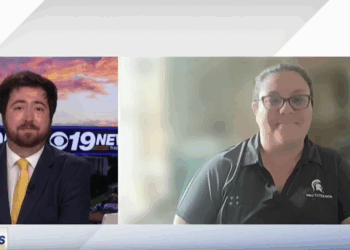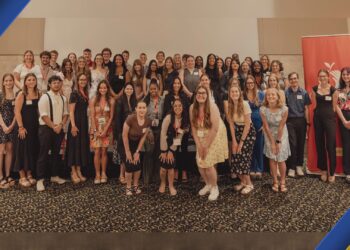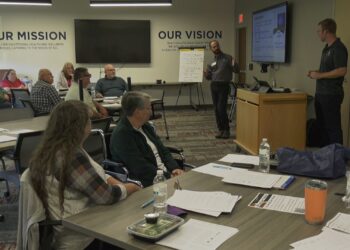IRON MOUNTAIN, Mich. — The future of Dickinson County’s 4-H program is uncertain after the county Board of Commissioners voted in January to remove funding for the Michigan State University Extension office.
For decades, Dickinson County has had an MSU Extension office which includes a 4-H coordinator, providing staff, training, insurance and oversight for local clubs. Extension staff say the funding cut could end both.
“The immediate effect is going to be no 4-H program, period,” said Jessica Ice, 4-H program coordinator for MSU Extension in Dickinson County. “Any sort of programming right now related to 4-H will no longer exist.”
Board Chair Dan Harrington said 4-H groups are self-funded and that taxpayers have twice rejected millages for an MSU position in the county.
“This isn’t about funding 4-H programs, they’re all self-funded groups,” Harrington said. “What we’re opposed to is Michigan State University wanting taxpayers to pay for their position.”
MSU Extension staff say the funding previously came from marijuana tax revenue, not the county’s general fund.
“There is no cost to the taxpayer out of the general fund, and that was by design from the prior board that’s been doing that for the past three years,” said Paul Putnam, MSU Extension District 1 director. “That comes directly from the marijuana tax revenue, it doesn’t come from the citizens at all.”
Supporters say losing the extension office would hurt not only youth agriculture programs but also county and state fairs, where many 4-H projects are showcased each year.
“You cut out that programming and that education, you’re not going to get the same standard, the same quality that we see now when youth are showing in the show ring,” Ice said.
Longtime 4-H member Caitlin Parker said the program has given her valuable skills and friendships.
“4-H means a lot to me. It means like friends and family because you get to meet so many new people and all these people that are showing animals have the same common interests as you,” Parker said.
MSU Extension leaders say they are working to schedule a formal meeting with commissioners to present their case and discuss possible funding options.









